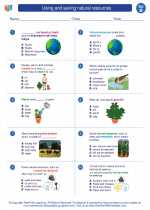Fungi: The Unsung Heroes of the Ecosystem
Fungi are a diverse group of organisms that play significant roles in the environment, medicine, and industry. They belong to the kingdom Fungi and are distinct from plants, animals, and bacteria. There are over 100,000 known species of fungi, and they come in various shapes, sizes, and forms.
Structure of Fungi
Fungi have a unique structure that sets them apart from other organisms. They consist of thread-like structures called hyphae, which form a network known as mycelium. The mycelium is the main body of the fungus and is typically hidden within its food source, such as soil, decaying matter, or living organisms. Fungi reproduce through spores, which are produced either sexually or asexually.
Ecological Importance
Fungi play crucial roles in the ecosystem. They are decomposers, breaking down organic matter and recycling nutrients back into the environment. This process is essential for maintaining the health of ecosystems. Additionally, certain fungi form symbiotic relationships with plants, providing them with nutrients and aiding in their growth. Without fungi, the balance of the ecosystem would be significantly disrupted.
Medicinal and Industrial Uses
Many fungi have medicinal properties and are used to produce antibiotics, such as penicillin. They also have applications in the production of food, alcoholic beverages, and biofuels. Fungi are used in the fermentation process to create products like bread, beer, and cheese. Furthermore, some fungi are utilized in bioremediation, the process of using living organisms to clean up polluted environments.
Study Guide
- What are the main characteristics of fungi?
- Describe the structure of fungi and their mode of reproduction.
- Explain the ecological importance of fungi in the environment.
- Discuss the medicinal and industrial uses of fungi.
- Give examples of symbiotic relationships involving fungi.
- How do fungi contribute to the process of bioremediation?
- Identify at least three common types of edible fungi and their culinary uses.
- Research and present a case study on a specific fungus and its impact on its ecosystem.
By studying fungi, we gain a deeper understanding of the intricate relationships that exist in the natural world and the invaluable contributions of these often overlooked organisms.
[Fungi] Related Worksheets and Study Guides:
.◂Science Worksheets and Study Guides Second Grade. Using and saving natural resources

 Worksheet/Answer key
Worksheet/Answer key
 Worksheet/Answer key
Worksheet/Answer key
 Worksheet/Answer key
Worksheet/Answer key
 Vocabulary/Answer key
Vocabulary/Answer key
 Vocabulary/Answer key
Vocabulary/Answer key
